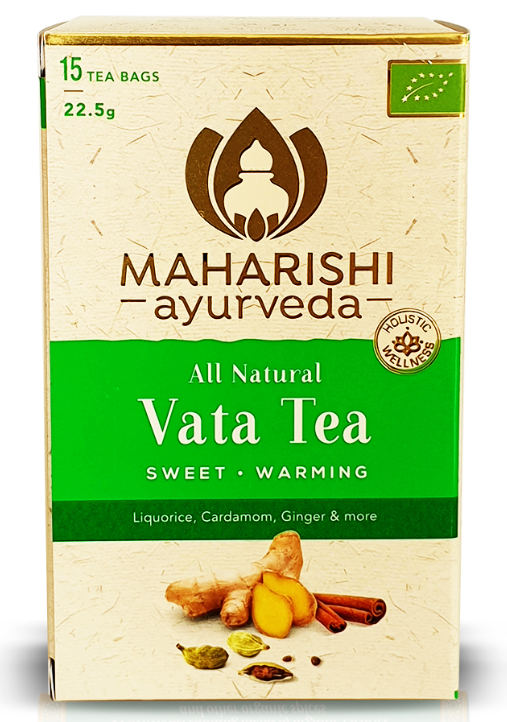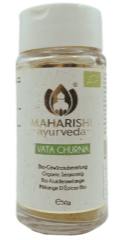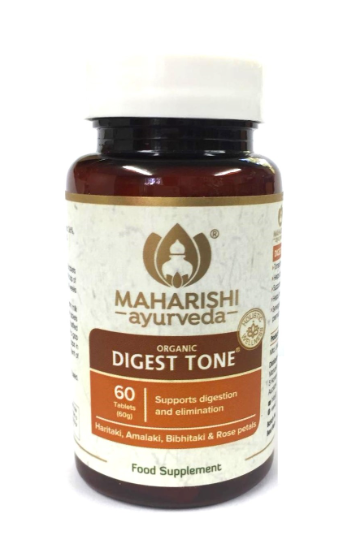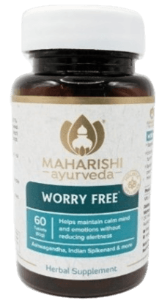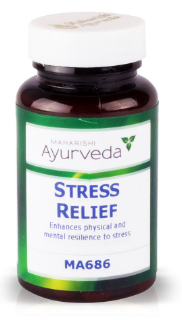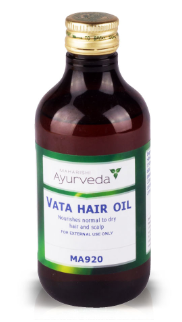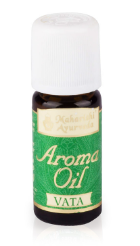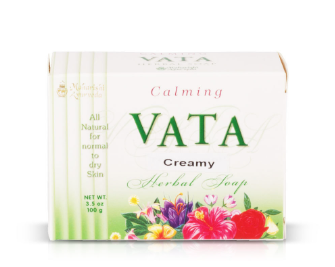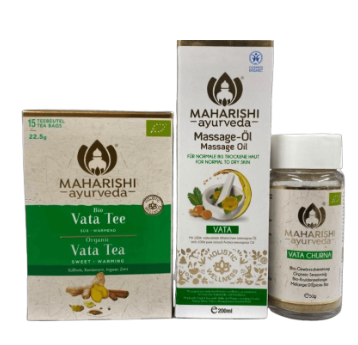|

This page will cover 5 topics that can help:
1. Understanding Vata basics
2. Vata qualities when balanced
3. Vata symptoms when imbalanced
4. Lifestyle recommendations to balance Vata
5. Herbal recommendations to balance Vata
1. Understanding Vata Basics:
Vata is composed of air and space and is made up of the following qualities; light, dry, cold, rough, quick, moving and subtle. If there is a Vata imbalance there will be an excess of one or more of the qualities in one’s mind and body, therefore the way to bring balance is to increase the opposite of that quality. If there is excess dryness, we will want to bring in more lubrication, internally and externally.
2. Vata Qualities when balanced:
- Lively spirit
- Enthusiastic
- Creative
- Fast and flexible
- Variable appetite
- Delicate and slender build
- Quick to learn, but easy to forget
3. Vata Symptoms when imbalanced:
- Dry/flakey skin
- Mental fatigue
- Feeling ungrounded
- Excess worry, anxiety, and fear
- Insomnia, or light interrupted sleep
- Constipation, bloating, excess flatulence
- Joint pain, lower back pain, sciatica
- Talking excessively, or nervously
4. Lifestyle habits to balance Vata:
A regular routine is key to grounding Vata:
- Have regular meal times.
- Do a daily oil massage, with sesame oil or Vata Massage Oil, ideally before your morning shower, to nourish your skin and ground your nervous system.
- Include daily down time and leisurely activities to ground vata’s excitable energy, such as meditating, taking a warm bath, listening to soothing music, or sipping a Vata tea.
- Include some physical exercise most days, but favour light exercises that enhance balance and flexibility such as Yoga, Qi Gong, Tai Chi, walking and short hikes, light bicycling, light tennis, golf, dance, and aerobics.
- Aim to have regular daily bowel motions, ideally first thing in the morning. If this is an issue for you, consider taking 2-4 tablets Digest Tone at bedtime.
- Aim to be in bed by 10 pm (be sure to wind down for 1-2 hours prior to bed and avoid mental stimulation after 8pm) and wake around 6am.
- Keep warm and avoid becoming chilled. Keep your head covered in cold weather and wear adequate clothing appropriate for the season.
A nourishing diet is also key to balancing Vata:
- Favour foods that are warm, oily, heavy and freshly cooked
- Favour more frequent smaller meals than larger meals.
- Favour foods that are naturally salty, sweet and sour and reduce foods that are astringent, pungent and bitter.
- Try Vata Churna - our organic spice mixture that balances Vata when sprinkled over savoury foods.
- To reduce gas and bloating or to support a regular appetite consider taking 1 tablet of Digest Plus after meals.
- Reduce or avoid caffeine, especially coffee, if you are to drink it make sure it is after a meal, never on an empty stomach. Including coffee substitutes such as Raja's cup is a great way to still include the bitter taste without being too stimulating for the nervous system.
5. Herbal recommendations to balance Vata:
Many people with a Vata imbalance experience an anxious and overactive mind. Our most powerful herbal formula for pacifying anxiety is Worry Free. A randomised control trial on Worry Free showed a two fold reduction in trait anxiety for patients that took 2 tablets, twice a day, for 3 months compared to the placebo group (Mills et al., 2002).
Many people with a Vata imbalance also experience trouble with sleeping, and good sleep is foundational to keeping Vata balanced. Here are some herbal suggestions to help promote a deep and restful sleep:
- Enjoy a nice cup of Good Night Tea 20 minutes prior bed.
- If you have difficulty falling asleep take Blissful Sleep 1-2 tablets prior bed. If you have difficulty waking in the night take Deep Rest 1-2 tablets prior bed and 1-2 tablets as needed if you wake.
- Use Nidra Aroma Oil that aids sleep. Place some drops on your pillow or in an aroma lamp at bedtime.
- Gently rub the feet with sesame oil or Vata Massage Oil at bedtime (you can remove excess oil with a soft cloth or paper towel).
|




